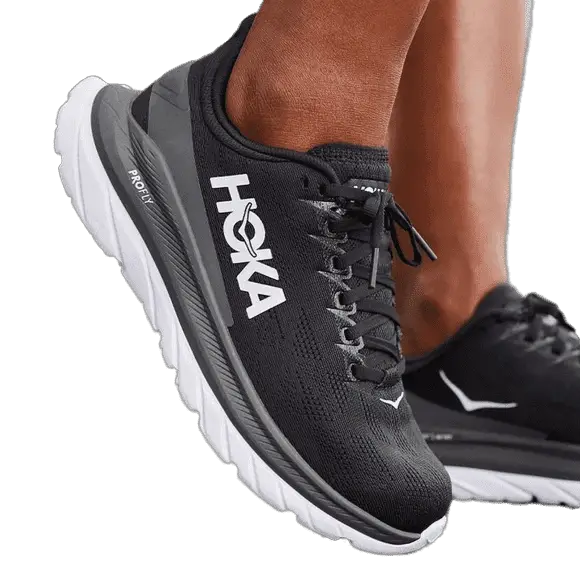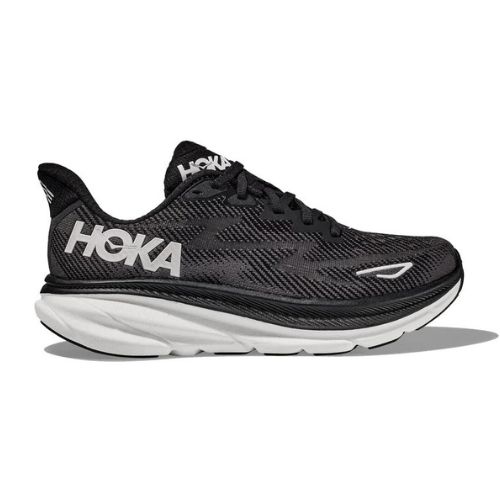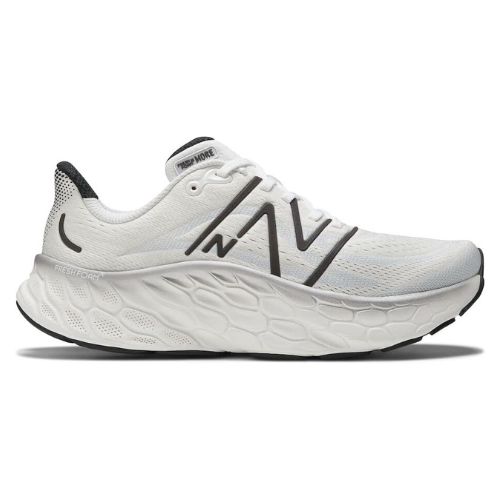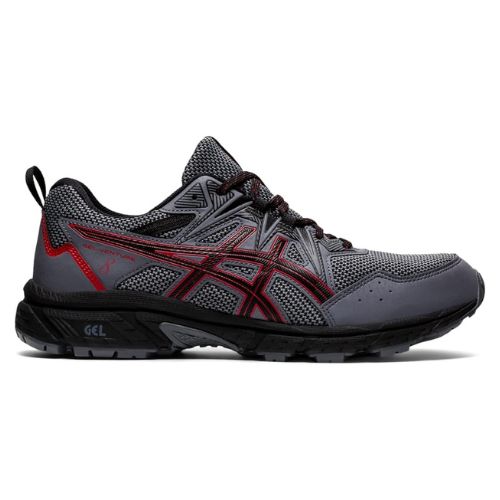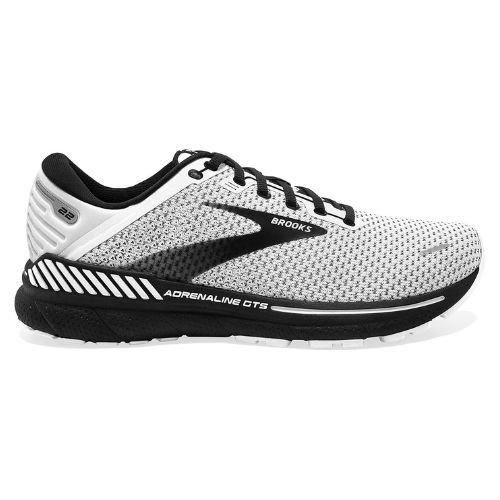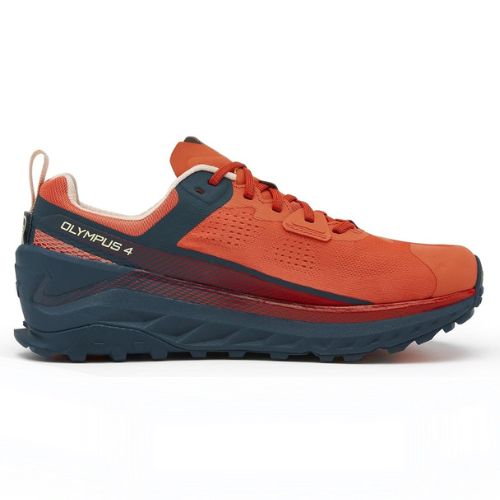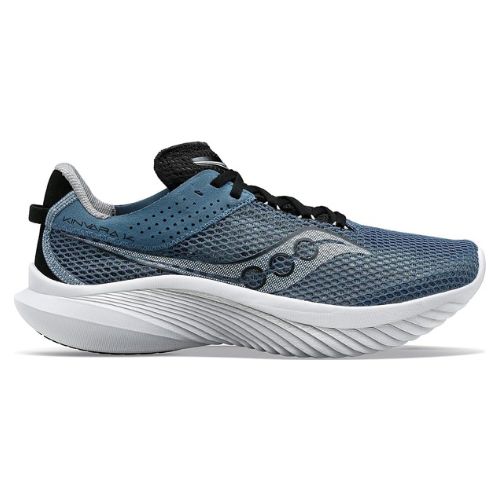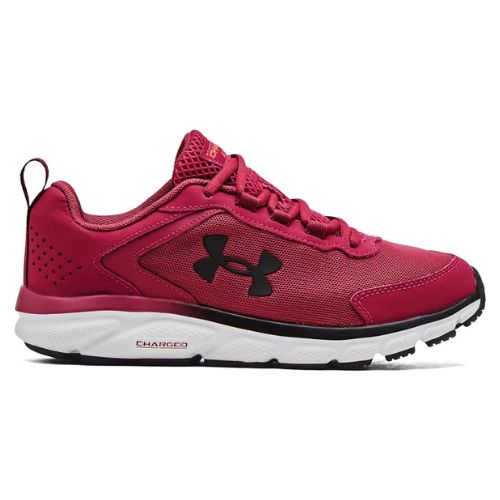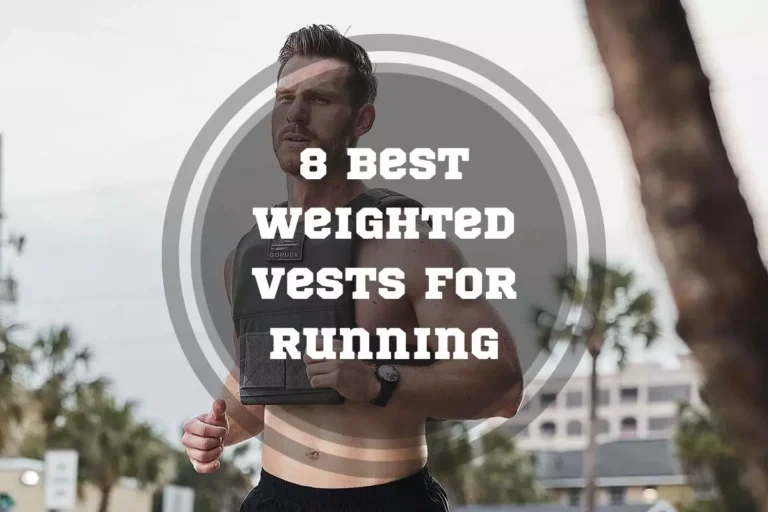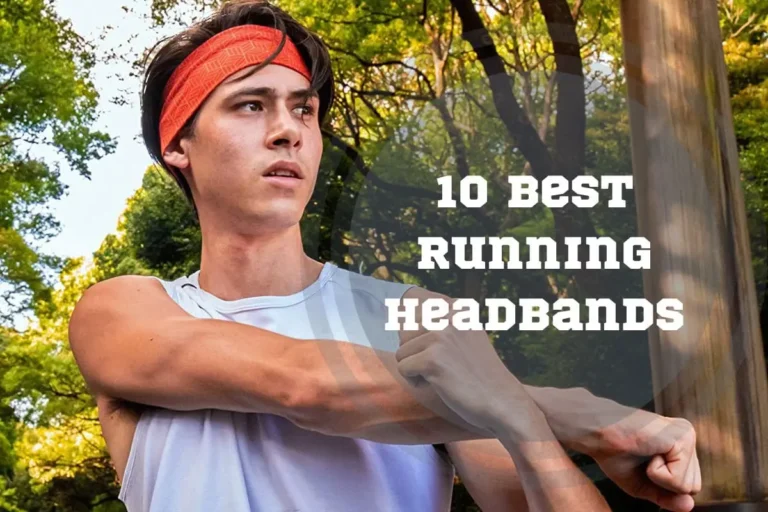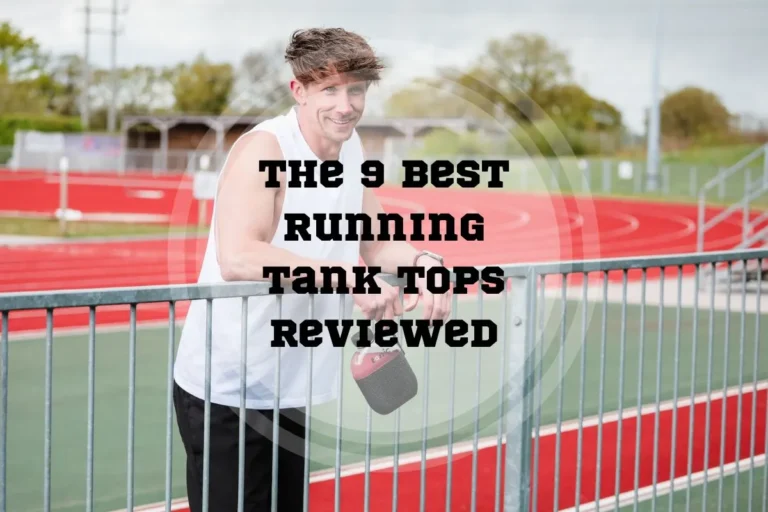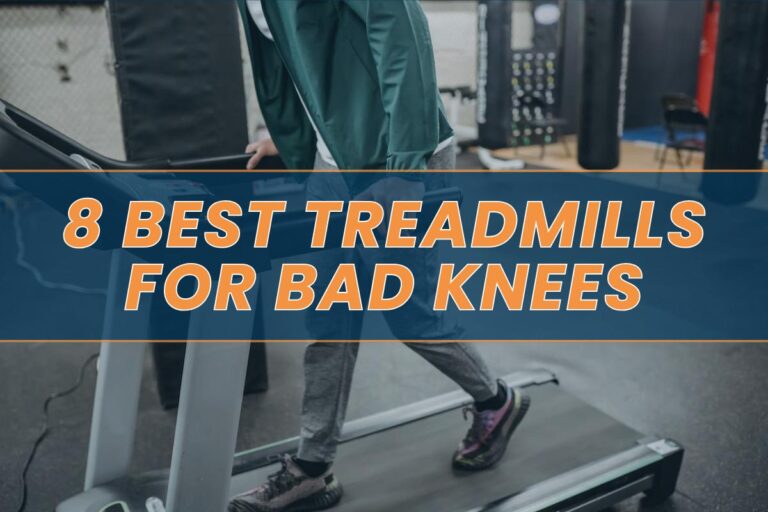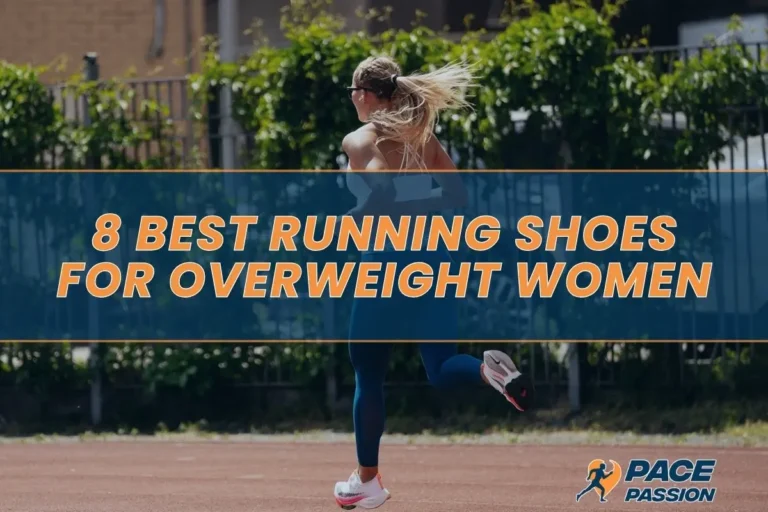7 Best Running Shoes for Metatarsalgia in 2026
Reviewed by: Ernesto Mendez (Orthopedic Clinical Specialist)
Are you an avid runner dealing with constant foot pain, specifically in the ball of your feet? If yes, you need the best running shoes for Metatarsalgia.
In this article, we will review 7 of the best running shoes for Metatarsalgia pain along with tips on how to identify it and what kind of shoe to wear. So if you’re ready to find the right shoe for your needs – read on!
In a HURRY? Skip to Our Pick
The HOKA ONE ONE Men’s Sneaker offers plush comfort and high support for runners with a ball of foot pain. Its perfectly engineered, unique design provides enhanced cushioning and stability in the ball of your foot while running.
This section features insightful reviews of the best ball of foot pain running shoes that provide exceptional comfort and support to those suffering from Metatarsalgia.
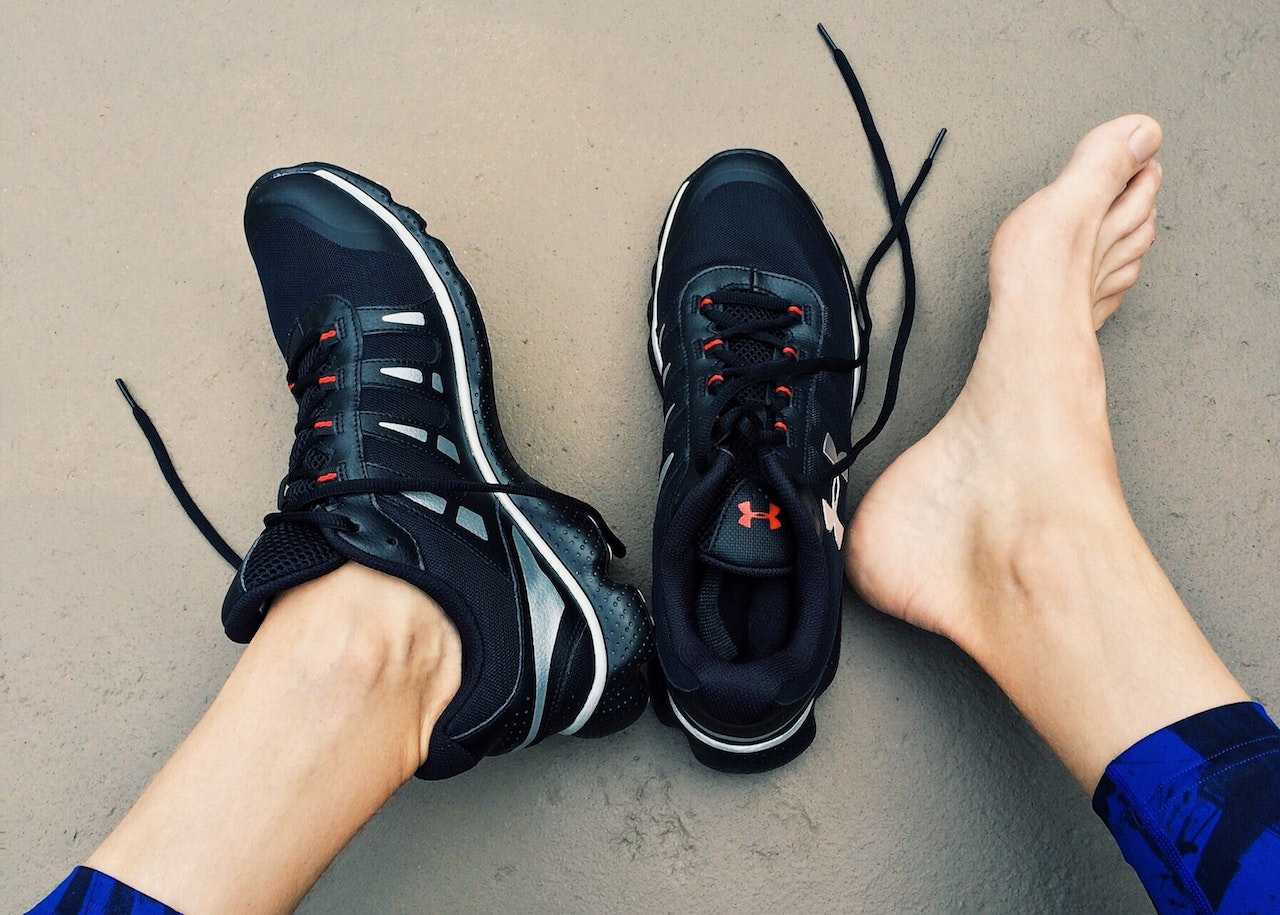
Top 7 Best Running Shoes for Metatarsalgia Reviewed
- HOKA ONE ONE Men’s Sneaker – Top Pick
- New Balance Men’s Fresh Foam X More V4 Running Shoe – Best For Long Runs
- ASICS Men’s Gel-Venture 8 Running Shoes – Budget Pick
- Brooks Men’s Adrenaline GTS 22 Supportive Running Shoe – The Most Designs
- ALTRA Women’s Olympus 4 Trail Running Shoe – Best For Women
- Saucony Men’s Kinvara 14 Sneaker – The Most Comfort
- Under Armour Women’s Charged Assert 9 Running Shoe – Stylish Pick
Running shoe comparison chart for runners with Metatarsalgia
| Product | Expert Score | Comfort | Breathability | Stability | Flexibility | Support | Cushioning | Durability | Value for Money |
|---|---|---|---|---|---|---|---|---|---|
| HOKA ONE ONE Clifton 9 | 4.9 | 50 | 4.9 | 5.0 | 5.0 | 4.9 | 4.9 | 5.0 | 5.0 |
| New Balance Fresh Foam X More V4 | 4.9 | 4.9 | 5.0 | 4.9 | 4.9 | 5.0 | 5.0 | 4.9 | 5.0 |
| ASICS Gel-Venture 8 | 4.9 | 4.9 | 4.8 | 5.0 | 4.8 | 4.9 | 5.0 | 5.0 | 4.9 |
| Brooks Adrenaline GTS 22 | 4.8 | 4.9 | 4.8 | 4.8 | 4.9 | 5.0 | 4.9 | 4.9 | 4.8 |
| ALTRA Olympus 4 Trail | 4.8 | 4.8 | 4.9 | 4.8 | 4.9 | 4.9 | 4.9 | 4.8 | 4.8 |
| Saucony Kinvara 14 | 4.8 | 4.9 | 4.8 | 4.8 | 4.7 | 4.9 | 4.8 | 4.9 | 4.8 |
| Under Armour Charged Assert 9 | 4.7 | 4.8 | 4.7 | 4.8 | 4.7 | 4.8 | 4.9 | 4.8 | 4.7 |
1. HOKA ONE ONE Men’s Sneaker
Top Pick
HOKA ONE ONE Clifton 9 For Men
Great features come together in these best sneakers HOKA Clifton 9 for Metatarsalgia to help relieve painful symptoms of Metatarsalgia (ball of foot pain) while running — and without compromising on performance or style.
Comfort:
Breathability:
Stability:
Flexibility:
Support:
Cushioning:
Durability:
Value for Money:
Expert Score:
Looking for the best men's shoes for Metatarsalgia? The HOKA ONE ONE Men's Sneaker offers plush comfort and high support for runners with ball of foot pain. Its perfectly engineered, unique design features a stiffer, metatarsal break section to provide enhanced cushioning and stability in the ball of your foot.
Hoka shoes for Metatarsalgia also have full-length EVA midsole cushioning and a wide, stable base that delivers superior shock absorption while running. Additionally, its thicker hard rocker sole ensures maximum comfort with every step you take.
- Material: Synthetic
- Sole material: EVA foam
- Outsole: Rubber
- Drop: Medium
- Colors: 13 colors
- Special features: Removable insole
- Size: from 8 to 12
- Type: For everyday running
Pros of HOKA ONE ONE Clifton 9:
- Durable midsole for great shock-absorption
- No-irritation textile lining
- Removable insole
Cons of HOKA ONE ONE Clifton 9:
- May not help with severe pain
2. New Balance Men's Fresh Foam X More V4 Running Shoe
Best for Long Runs
New Balance Men's Fresh Foam X More V4 Running Shoe
The New Balance shoes for Metatarsalgia are available to accommodate every runner’s needs of comfort in this light-weight stylish design.
Comfort:
Breathability:
Stability:
Flexibility:
Support:
Cushioning:
Durability:
Value for Money:
Expert Score:
The New Balance Men's Fresh Foam X More V4 Running Shoe is an excellent choice for runners looking for the best running shoes for ball of foot pain. The lightweight shoe has a breathable and soft engineered mesh upper that is perfect for long runs or daily training.
Its cushioning makes it a great recovery day item, and its durability ensures high mileage. As it is extra-lightweight, there won’t be any added strain on your feet while running long distances.
- Material: Synthetic
- Sole material: Fresh foam X
- Outsole: Rubber
- Drop: Low
- Colors: 12 colors
- Special features: Promotes natural stride
- Size: from 7 to 16 with X-wide options
- Type: For long runs
Pros of New Balance Fresh Foam X More V4:
- Maximum cushioning
- Snug mesh upper
- Lightweight and breathable
Cons of New Balance Fresh Foam X More V4:
- Some users find them a bit bulky
3. ASICS Men's Gel-Venture 8 Running Shoes
Budget Pick
Running Shoes ASICS Gel-Venture 8
The ASICS Men’s Gel-Venture 8 for running feature GEL technology cushioning that adds comfort and absorbs shock for a smoother ride.
Comfort:
Breathability:
Stability:
Flexibility:
Support:
Cushioning:
Durability:
Value for Money:
Expert Score:
The ASICS Gel-Venture 8 Running Shoes are ideal for runners with Metatarsalgia seeking relief and support. It provides an accommodating forefoot fit when compared to its previous model, the Gel Venture 8.
These trail running shoes provide superior impact absorption and they are great for all types of running loads. Plus, with ASICS as the maker of this shoe, you can trust that it is optimal for relieving pain while providing reliable stability.
- Material: Synthetic
- Sole material: Gel
- Outsole: Rubber
- Drop: Medium
- Colors: 23 colors
- Special features: Asics GEL technology
- Size: from 7 to 15 with X-wide options
- Type: For all types of running exercises
Pros of ASICS Gel-Venture 8:
- Gel cushioning
- Durable outsole
- Budget-friendly
Cons of ASICS Gel-Venture 8:
- Some users find them a bit narrow for wide feet
4. Brooks Men's Adrenaline GTS 22 Supportive Running Shoe
The Most Designs
Brooks Men's Adrenaline GTS 22 Supportive Running Shoe
These Brooks shoes for Metatarsalgia gently hold your whole foot for amazing arch stabilization coupled with pain relief from impact absorbed every step of the way.
Comfort:
Breathability:
Stability:
Flexibility:
Support:
Cushioning:
Durability:
Value for Money:
Expert Score:
The Brooks Men's Adrenaline GTS 22 offers the perfect balance of support and softness for a smooth, comfortable running experience. With extra comfortable cushioning, this shoe provides lockdown form-fitting comfort with a wide fit from toe box to heel.
The upper is incredibly supple and breathable while providing structure and security for road running. Moreover, airy mesh uppers help keep feet cool while special foam service encourages bounce back during runs which relieves fatigue in heels and toes.
- Material: Synthetic
- Sole material: DNA LOFT Foam
- Outsole: Rubber
- Drop: Medium
- Colors: 30 colors
- Special features: GuideRails support
- Size: from 7 to 15 with X-wide options
- Type: For everyday running
Pros of Brooks Adrenaline GTS 22:
- Good arch support
- Great for overpronation
- Helps relieve pain
Cons of Brooks Adrenaline GTS 22:
- Some users report that the laces are a bit short
5. ALTRA Women's Olympus 4 Trail Running Shoe
Best for Women
ALTRA Women's Olympus 4 Trail Running Shoe
Its breathable and durable engineered mesh upper provides excellent protection, while its premium tongue ensures a tailored fit so your foot is locked in place at all times.
Comfort:
Breathability:
Stability:
Flexibility:
Support:
Cushioning:
Durability:
Value for Money:
Expert Score:
This is a great option for runners with Metatarsalgia looking to hit the trails. It offers superior grip on both wet and dry surfaces thanks to the Vibram MegaGrip outsole that performs incredibly well even in wet conditions.
With its innovative stack height of 33mm high this shoe can provide you with the necessary support and comfort for Metatarsalgia symptoms during trail running. It all makes ALTRA Women’s AL0A4VQW Olympus 4 Trail Running Shoe an ideal choice if you want an optimum balance of cushioning, features, and performance.
- Material: Synthetic
- Sole material: InnerFlex foam
- Outsole: Rubber
- Drop: Medium
- Colors: 4 colors
- Special features: Vibram MegaGrip outsole for wet surfaces
- Size: from 5.5 to 7
- Type: For everyday running
Pros of ALTRA Olympus 4 Trail:
- Lightweight and breathable
- FootShape toe box
- Altra balanced cushioning
Cons of ALTRA Olympus 4 Trail
- This model may run small
6. Saucony Men's Kinvara 14 Sneaker
The Most Comfort
Saucony Men's Kinvara 14 Sneaker
The Saucony Men's Kinvara 14 Sneaker proves to be an outstanding choice when it comes to choosing running shoes specifically designed for people with Metatarsalgia.
Comfort:
Breathability:
Stability:
Flexibility:
Support:
Cushioning:
Durability:
Value for Money:
Expert Score:
The Saucony Men's Kinvara 14 Sneaker is one of the best shoes for metatarsal bursitis, providing top-notch foot support and deluxe comfort. The shoe offers lightweight yet durable materials, giving the runner a balanced experience without sacrificing quality or performance.
Featuring a generous toe box room that allows plenty of space for your toes, this sneaker also ensures high breathability while still managing to be stylish. Its cushioning system helps absorb shock upon impact giving you a much smoother stride each time you run or walk. With its 4mm heel-to-toe drop design, there won’t be any excessive pressure placed onto your forefoot as you exercise.
- Material: Synthetic
- Sole material: PWRRUN foam
- Outsole: Rubber
- Drop: Medium
- Colors: 12 colors
- Special features: PWRRUN+ sockliner
- Size: from 7 to 15 with wide options
- Type: For all kinds of running
Pros of Saucony Kinvara 14:
- Secure stride at full speed
- Super light and fast
- Durable
Cons of Saucony Kinvara 14:
- May not fit extra wide feet
7. Under Armour Women's Charged Assert 9 Running Shoe
Stylish Pick
Under Armour Women's Charged Assert 9 Running Shoe
These shoes are suitable for both running and cross-training purposes, so you can comfortably transition from one activity to another throughout the day.
Comfort:
Breathability:
Stability:
Flexibility:
Support:
Cushioning:
Durability:
Value for Money:
Expert Score:
The Under Armour Women's Charged Assert 9 Running Shoe is a great choice of Metatarsalgia running shoes. It offers lightweight comfort, stability, and shock absorption in one stylish package.
The upper features a lightweight mesh construction with a 3-color digital print for enhanced breathability. In addition, the leather overlays provide midfoot support with great flexibility.
Additionally, the shoe also has UA’s patented Charged Cushioning technology which helps protect against impact and absorbs energy during running.
- Material: Synthetic/leather
- Sole material: EVA foam
- Outsole: Rubber
- Drop: Medium
- Colors: 19 colors
- Special features: Charged Cushioning technology
- Size: from 5 to 12 with wide options
- Type: For all types of running
Pros of Under Armour Charged Assert 9:
- Durable leather overlays
- Good shock absorption
- Balance of flexibility and cushioning
Cons of Under Armour Charged Assert 9:
- May need high-arch insoles for the best fit
What Is Metatarsalgia (Ball of Foot Pain)?
Ball of foot pain or Metatarsalgia is a common condition that causes pain, inflammation, and discomfort in the ball of the foot. This area is made up of five bones known as the metatarsals, so it’s often referred to as metatarsal bone pain.
The majority of ball of foot pain cases occur when there is an imbalance between these five bones which leads to excessive pressure on one or two areas causing swelling or tendinitis around those spots.
This condition commonly occurs from wearing tight shoes such as high heels or boots that put more pressure on this spot than necessary, thus irritating the affected area even further.
4 Main Causes of Metatarsalgia in Runners
Here are the most common causes of Metatarsalgia in runners:
1. Foot Deformities
Foot deformities such as first ray insufficiency, a long second metatarsal bone, and others can contribute to the development of Metatarsalgia in runners.
If any of these conditions are present, they can put extra pressure on the ball of the foot when running or walking. This can result in pain in the area and worsen over time if not addressed with proper footwear and stretching techniques.
2. Improper Footwear
Wearing shoes which are ill-fitting and unsupportive also increases the risk of developing Metatarsalgia. Proper footwear is crucial for comfort and performance, particularly when running or engaging in a high impact activity.
Moreover, poorly fitting shoes with insufficient cushioning and padding can cause foot muscles to be overworked. It leads to increased pressure on feet’s tissues, which could eventually result in forefoot pain and discomfort.
3. Overtraining
Oftentimes, ball of foot pain in runners is due to overtraining. Running marathon distances or performing intense workout routines might seem like a great way to stay fit, but excessive physical activity can affect the feet. Often, it leads to foot pain and discomfort.
The impact of running and jumping activities combined with ill-fitting shoes that don’t support your feet properly can lead to the development of chronic foot problems.
4. Muscle Imbalances
Unaddressed and unchecked muscle imbalances in the foot and lower leg is yet another factor that contributes to Metatarsalgia in runners. Poor balance, due to weak muscles in the foot is usually associated with this type of pain.
A common issue among runners with Metatarsalgia is tight calf muscles, which places excessive strain on the midfoot area. Appropriate footwear suited to an individual's biomechanics must be considered when looking for a relief. It will provide additional cushioning and support where required most.
How to Understand That You Have Metatarsalgia and What to Do to Relieve It
To check whether you’re prone to Metatarsalgia, look for the following things.
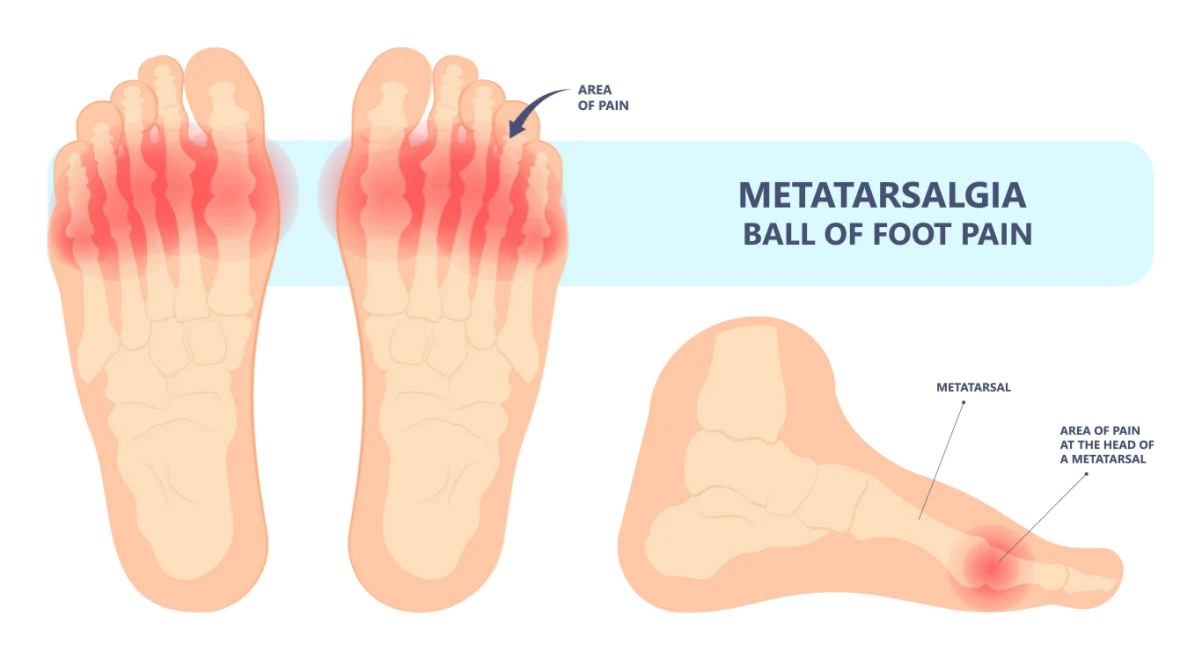
1. Forefoot Pain
The pain is typically localized to this area because excessive pressure accumulates due to incorrect footwear or deformity-related issues like bunions or hammer toes.
High impact activities such as running and jumping can also cause increased amounts of local pressure. It results in burning, tingling sensation, and difficulty walking/running.
2. Burning or Tingling Sensation
The burning or tingling sensation of Metatarsalgia often manifests as a sharp, gnawing pain in the ball of the foot that can range from mild to severe depending on severity.
This feeling can be accompanied by numbness and tingling that radiates down to the toes. It usually worsens upon standing, running, jumping, or any other high-impact exercise with foot grounds contact.
3. Difficulty Walking or Running
Metatarsalgia can also cause difficulty walking or running due to inflammation and swelling around the affected area.
The pain may become worse when doing high-impact activities such as running on hard surfaces. Therefore, it's important for people dealing with Metatarsalgia to have adequate footwear and seek medical guidance if necessary.
4. Swelling or Inflammation
Swelling or inflammation of the tendons, ligaments, and cartilage surrounding your metatarsal bones can occur in one or all of your toes causing significant discomfort. Swelling and pain caused by Metatarsalgia is typically associated with physical activity such as running or walking for long periods of time.
Subscribe to Our Running Newsletter!
Get free running tips from renowned professional athletes and discounts from top-notch brands.
Relieving Metatarsalgia Pain
Some key tips for reducing swelling and inflammation associated with Metatarsalgia include proper rest, applying ice packs regularly over aching areas. Taking OTC anti-inflammatory medication such as ibuprofen may also help reduce pain.
If suffering this discomfort at rest it is recommended seeking medical guidance and relief treatments such as custom orthotics.
What Kind of Shoes Should I Wear with Metatarsalgia?
For runners suffering from Metatarsalgia, the right shoe is a critical part of relieving the pain and ensuring that your feet are comfortable throughout the run. Ideally, you should look for lightweight shoes with plenty of cushioning to reduce shock on the forefoot.
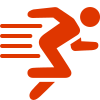
Pro Tip:
Look for shoes with zero drop platforms or slightly elevated heels as well as roomy toe boxes to give more space to move your toes.
Shoes with supportive arch areas are also beneficial for stability when running. These shoes offer maximum cushioning without compromising on breathability or support. With these types of features in mind, you can find some great options for running with Metatarsalgia comfortably and safely again.
What to Look For When Choosing Running Shoes for Metatarsalgia: Buyer's Guide
When shopping for running shoes for Metatarsalgia, make sure to look out for these 5 features:
1. Low Heel to Toe Drop
When choosing running shoes for Metatarsalgia, it’s important to select a pair with a low heel-to-toe drop. This type of shoe has a minimal distance between the heel and the toes which promotes more natural foot strike mechanics while running.
Additionally, the lower drop also helps to reduce pressure on joints and can prevent feet from slipping forward in the shoe when landing.
2. Cushioning and Shock Absorption
Cushioning helps absorb the impact on your feet when running or walking, reducing pressure on the ball of your foot. Shock-absorbing midsoles reduce stress by dispersing impact energy during high-impact activities like running and jumping.

Pro Tip:
Memory foam materials provide extra cushioning along with arch support if needed. However, make sure they don't add too much bulk or weight which can lead to discomfort during long runs.
3. Breathable and Supportive Uppers
Breathable and supportive uppers are a crucial feature to look out for when choosing your running shoes with metatarsal support. They help prevent discomfort and ensure proper foot function.
Mesh uppers allow the feet to remain cool and dry, so you won't experience any sweaty feet. Other materials that are commonly found in breathable and supportive uppers include leather, nylon, thermoplastic polyurethane (TPU), EVA, lycra, suede, spandex, and synthetic. They provide an added layer of cushioning as well as wrapping around the foot securely while still allowing some flexibility.
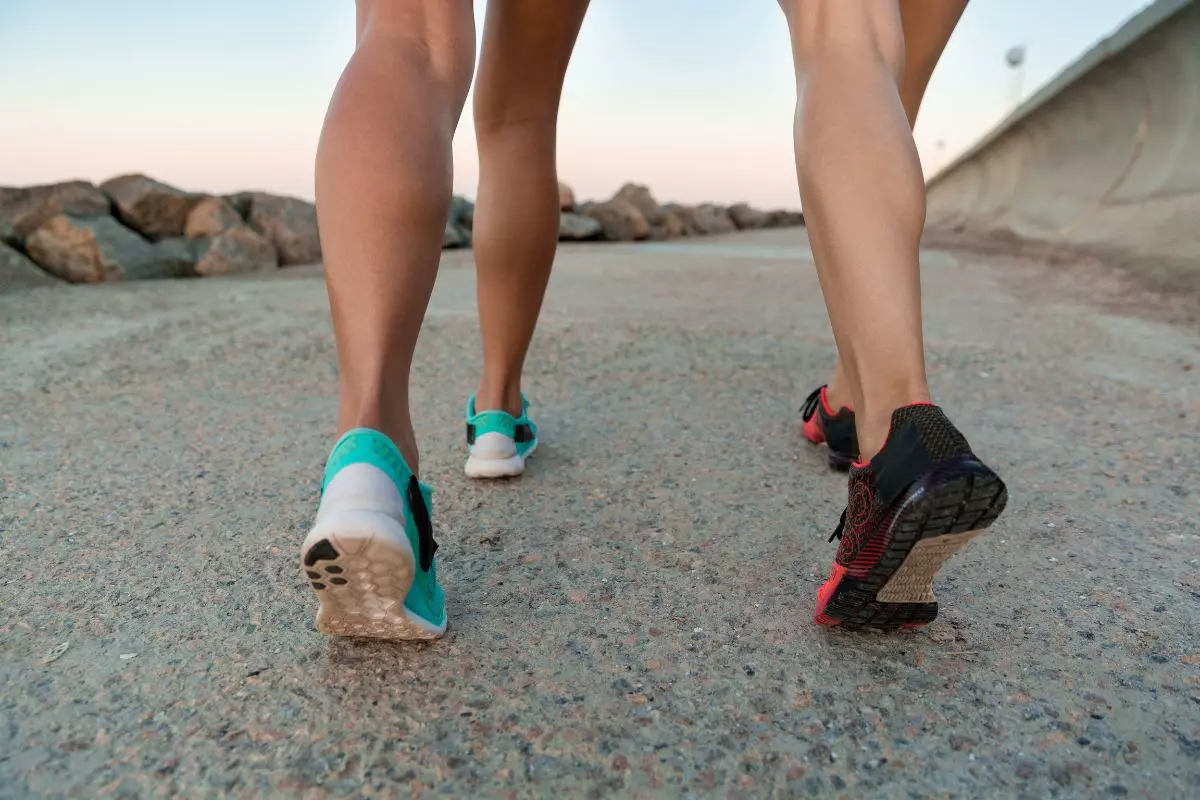
4. Durable and Flexible Outsoles
If you want to ensure an enjoyable and pain-free running experience, durable and flexible outsoles should be a crucial consideration. They provide stability and support to your feet while also reducing any strain on your metatarsal area.
Durable soles ensure that the elements will remain intact even after long runs. While flexibility gives you freedom of movement to move comfortably without worrying about restricted motion affecting your performance.
5. Proper Fit and Comfort
A shoe with a firmer forefoot can provide support and alleviate ball-of-foot pain, while a comfortable slipper top will ensure your feet remain secure inside the shoe's upper.

Pro Tip:
There should be plenty of room in the toe box to prevent compression or discomfort while you move around. Wearing shoes that are too tight can increase your risk of developing Metatarsalgia or make existing symptoms worse, so picking the right size is essential.
Frequently Asked Questions about the Best Running Shoes for Metatarsalgia
Should I Stop Running if I Have Metatarsalgia?
In order to treat this condition as well as avoid further irritation, you need to avoid serious running loads for 3-4 weeks. You may try cross-training or light jogging, depending on the severity of your pain.
Can Shoes Cause Metatarsalgia?
Yes, shoes can contribute to the development of Metatarsalgia. Excessive mileage, over-rotation of the foot, poor gait mechanics and improper footwear choices are all factors that lead to it.
How Long Does It Take for Metatarsalgia to Heal?
With prompt management, complete recovery from this condition can take place between 6 to 8 weeks. However, for treating Metatarsalgia, following a self-treatment protocol over 2 to 3 weeks should be considered before opting into more invasive methods of care such as surgery.
Are New Balance Shoes Good for Metatarsalgia?
Yes, New Balance shoes are an excellent choice for Metatarsalgia sufferers. These shoes have a firmer forefoot and a more comfy slipper top that takes the pressure off of your metatarsals, reducing pain in the area.
Final Thoughts on the Best Running Shoes for Metatarsalgia
Choosing the right running shoes for Metatarsalgia can be a daunting task, as there is no one-size-fits-all solution. You must consider factors such as cushioning and shock absorption, wide toe box, low heel-to-toe drop, sound arch support, and breathable uppers.
Of all of the options available on today’s market — it truly comes down to personal preference and use. There are various shoes designed specifically for runners with metatarsal (ball of foot) pain, but HOKA ONE ONE Men's Sneakers have consistently been at the top of the list in terms of comfort and stability.
Also, taking care of your feet is essential in maintaining an active lifestyle free from injury or discomfort. So find the best running shoe to provide the necessary foot pain relief and comfort while still keeping up with your active lifestyle!
What ball of foot pain running shoes do you prefer? Please share your picks in the comments below.
Also read:
- Big Toe Hurts After Running
- Best Running Insole
- Hoka vs Brooks Running Shoes
- Benefits of Rucking vs Running
- Pickle Juice for Runners
- What Is Considered Long Distance Running
- Sprint vs Run
- Should You Do Yoga Before You Run
References:
- Federer AE, et al. Conservative Management of Metatarsalgia and Lesser Toe Deformities. Foot Ankle Clin. 2018 Mar;23(1):9-20. https://www.sciencedirect.com/science/article/abs/pii/S1083751517300980?via%3Dihub
- Hähni M, et al. The effect of foot orthoses with forefoot cushioning or metatarsal pad on forefoot peak plantar pressure in running. J Foot Ankle Res. 2016 Nov 16;9:44 https://jfootankleres.biomedcentral.com/articles/10.1186/s13047-016-0176-z
- Malta JN, et al. Diagnostic and Therapeutic Challenge of Metatarsalgia in a Patient With Rheumatoid Arthritis. Cureus. 2022 Jan 30;14(1):e21751 https://www.ncbi.nlm.nih.gov/pmc/articles/PMC8889045/
- Brooks Running Shoes Technology, https://www.brooksrunning.com/en_us/meet-brooks/running-shoe-technology/
- What Is ASICS’ GEL™ Technology? | ASICS, https://www.asics.com/us/en-us/blog/what-is-asics-gel-technology.html , February 3, 2022
- Hoke Technology, https://www.hoka.com/en/us/hoka-technology.html
Why Trust Us?
Pace Passion is committed to helping runners of all levels find the best product to improve their training and running performance. We use a comprehensive methodology for reviewing running and nutrition products for runners, so we only recommend products that we use ourselves or have had the opportunity to test. Read more about product testing here. Learn more about us here.
If you have any questions or suggestions, you can contact us via email – [email protected]

